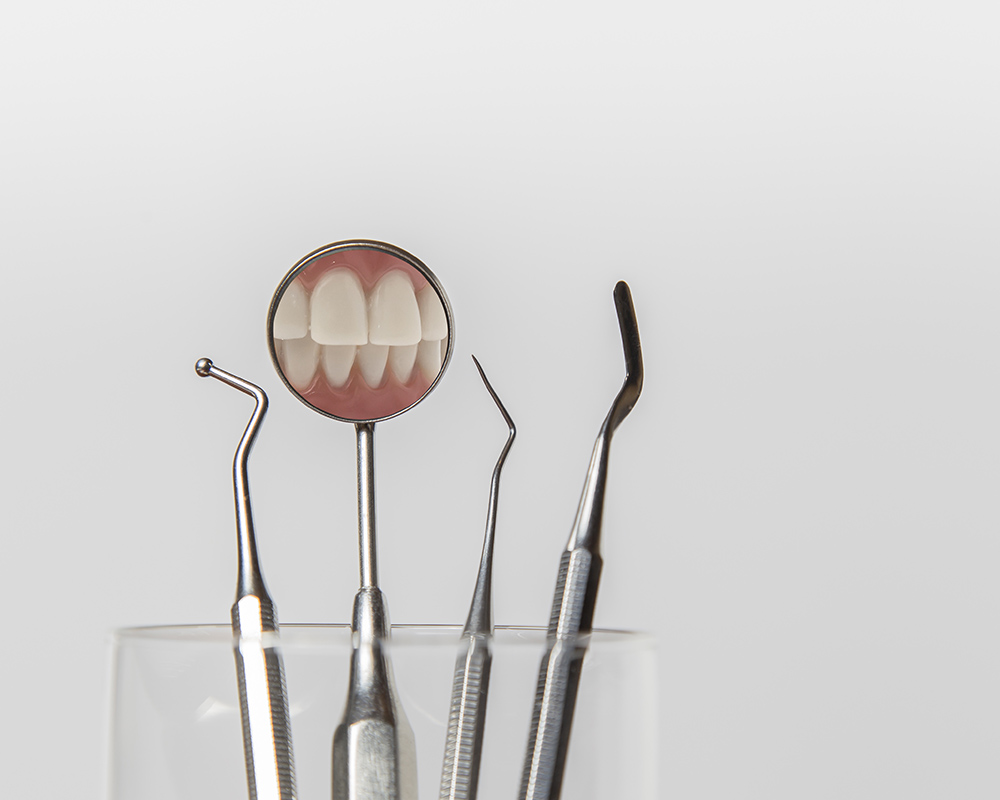Extraction
Extractions can be necessary for many reasons, including extensive decay, periodontal disease, impacted tooth, trauma or to make room for other teeth in a mouth that are too crowded. Sometimes, decayed or damaged teeth can be saved with fillings, crowns or root canals; but some teeth are so badly damaged, they cannot be saved, or saving them could compromise the health of other teeth. In those cases, an extraction is necessary.
A tooth extraction is a dental option wherein a tooth is removed from its dental alveolus or socket. At One Centre Dentistry tooth extraction is primarily performed by an oral surgeon who is are highly-skilled and experience to perform dental extractions.
Our dentists will thoroughly check your teeth, gums, and mouth before extracting a tooth. It is best to preserve your teeth, however, if it cannot be avoided, we make sure that the teeth extraction procedure is as painless as possible.
We make sure that the area where the tooth is to be extracted is completely numb before extracting the tooth. At One Centre Dentistry patient comfort is our first concern.
There are 2 types of extraction procedures. Simple extractions are usually performed on teeth that are visible in the mouth and is usually done under local anesthesia. Surgical extraction procedures are performed when the tooth cannot be easily accessed. This happens when the tooth has not fully erupted or when the tooth has been broken under the gum line. For a painless, safe, and the most comfortable tooth extraction, contact us at One Centre Dentistry in Scarborough .

WISDOM TEETH extractions
Third molars ,commonly referred to as wisdom teeth are usually the last teeth to develop and are located in the back of your mouth, behind your second molars. Although most people develop and grow 32 permanent adult teeth, many times their jaws are too small to accommodate the four wisdom teeth. When inadequate space prevents the teeth from erupting they are called impacted. This indicates their inability to erupt into the proper position for chewing and cleaning. Impacted wisdom teeth should be removed before their root structure is fully developed. In some patients it is as early as 12 or 13, and in others it may not be until the early twenties. Problems tend to occur with increasing frequency after the age of 30. We will need to see you for a consultation to determine if you will benefit from wisdom tooth removal. A special x-ray of your mouth and jaws (panorex) and/or a 3-dimensional scan will be taken to determine if your wisdom teeth are impacted, if there is room for them to erupt, and how difficult involved it will be to have them removed. Soft Tissue Impaction is when not enough room to allow the gum tissue to retract for adequate cleaning of the tooth. Partial Bony Impaction is when the tooth is only partially erupted/exposed due to either lack of space of the (angled) position of the tooth. Finally Complete Bony Impaction is when there is NO space for the tooth to erupt. It remains embedded in the jawbone or if even partially visible requires complex surgical techniques for removal. Some of the possible problems related to not removing your wisdom teeth include a representation of a pericoronitis ( a localized gum infection)infection on a wisdom tooth. Without enough room for total eruption, the gum tissue around the wisdom tooth can become irritated and infected, resulting in recurrent pain, swelling, and problems with chewing and/or swallowing. Non-infectious diseases such as Cysts ,fluid-filled “balloons” , inside the jawbone can develop as a result of impacted wisdom teeth and slowly expand destroying adjacent jawbone and occasionally teeth. They can be very difficult to treat if your wisdom teeth are not removed in your teenage years. Although rare, tumors can be associated with the delayed removal of wisdom teeth.
Impacted wisdom teeth may contribute to crowding of your teeth. This is most noticeable with the front teeth, primarily the lower front teeth and is most commonly seen after a patient has had braces. . If there is inadequate room to clean around the wisdom tooth, the tooth directly in front, the second molar, can be adversely affected resulting in gum disease, bone loss around the tooth, and/or decay or even loosing that tooth also.
What If I Don’t Have My Wisdom Teeth Removed As A Teenager Or Young Adult?
As wisdom teeth develop, the roots become longer and the jawbone more dense. When it is necessary to remove impacted wisdom teeth in your thirties, forties or beyond, the post-operative course can be prolonged and there is a higher complication rate. Treating these complications is often more difficult and less predictable than with a younger patient. Healing may be slower and the chance of infection can be increased.
With an oral examination and x-rays of the mouth, Dr. Shabanpour and our oral surgeon Dr.Chau can evaluate the position of the wisdom teeth and predict if there are present or future potential problems. Studies have shown that early evaluation and treatment result in a superior outcome for the patient. Patients are generally first evaluated in the mid-teenage years.
All outpatient surgery is performed under appropriate anesthesia to maximize patient comfort.
Removal
In most cases, the removal of wisdom teeth is performed under local anesthesia, laughing gas (nitrous oxide/oxygen analgesia), or oral sedation. These options, as well as the surgical risks (i.e., sensory nerve damage, sinus complications), will be discussed with you before the procedure is performed. Once the teeth are removed, the gum may be sutured. You will rest under our supervision in the One Centre Dentistry until you are ready to be taken home. Upon discharge your postoperative kit will include postoperative instructions, a prescription for pain medication, antibiotics.

